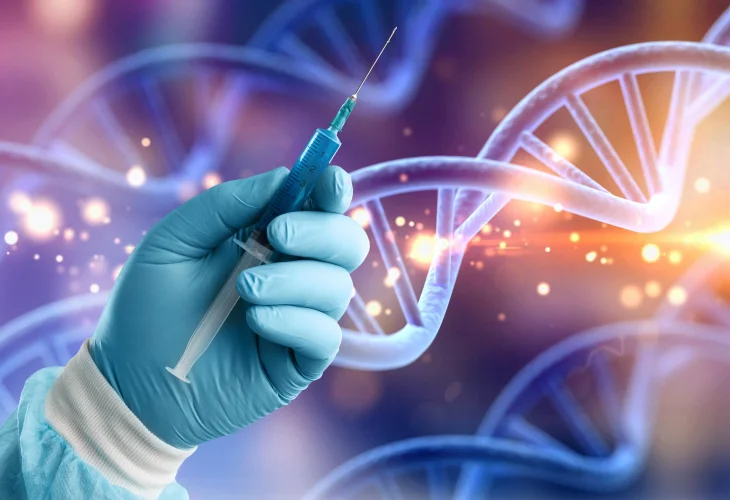Science Unfolds the Miracle of DNA: Beyond Random Chance
How does an embryo know how to develop, organizing complex organs, bones, arteries, and nerves step by step?
 (Photo: Shutterstock)
(Photo: Shutterstock)How does an embryo know how to develop, organizing complex organs, bones, arteries, and nerves step by step?
The blueprint for constructing the body resides within the nucleus of a living cell, known as DNA.
Each cell in our body carries hereditary material shaped as DNA, akin to a library of detailed data on building organs and cells. A human's DNA comprises 3 billion nucleotides, which we can equate to letters. Penning all the vast information of the human genome would demand a stack of 2,000 books towering 60 meters high, together containing a million pages.
This enormous library of genetic data is compacted into a tiny coil within the cell's nucleus, with a size not exceeding 5 micrometers (a thousand micrometers make one millimeter)! Hard to believe, but the nucleus of a cell is 17 times smaller than the period printed at the end of this sentence.
This immense complexity of life isn't seen only in the human body. Even the genetic information of a "simple" bacterium like E. coli contains about 3 million nucleotides.
Biophysicist Dr. Harold Morowitz calculated that for a solitary bacterium to arise, it would take longer than the entire lifespan of the universe, if random molecular combinations were the sole driving force.
Most people are unaware of how unlikely random matches are. To illustrate: what do you think are the odds that a random shuffling of 52 cards would place them in the correct order?
It may only be 52 cards, but the number of ways to arrange them is astronomical: 80 million trillion trillion trillion trillion trillion. This colossal number is represented as: 80,658,175,000,000,000,000,000,000,000,000,000,000,000,000,000,000,000,000,000,000,000,000
The probability of a random match is just 1 out of the number above.
Some estimate the universe's age at 13 billion years, yet this number pales beside the improbability of 52 successful genes! All the more so, 3 billion genes in human DNA...
It turns out that belief in "luck" can't grapple with the colossal complexity of living cells, animals, and the human body.
Chemist Dr. Roland Hirsch wrote, "Life, as revealed to us by new technologies, is more complex than what Darwinian perspectives predicted. Modern science allows a scientifically aware person to be skeptical of Darwinian theories."
Science fumbles in the dark, only beginning to uncover what Hashem revealed to us at Mount Sinai thousands of years ago: "And Hashem said, 'Let the land produce living creatures according to their kinds: livestock, creatures that move along the ground, and wild animals, each according to its kind.' And it was so. Hashem made the wild animals according to their kinds, the livestock according to their kinds, and all the creatures that move along the ground according to their kinds... And Hashem created mankind" (Genesis 1:24-27). Everything Hashem made with boundless wisdom, and science inches closer to this understanding with each generation.

